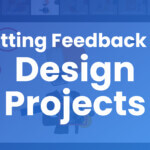AI is here and automation is advancing. A new generation of workers is changing how things work. Covid launched the hybrid and WFH era. And that new boss has new ideas of how things should run.
With more frequent workplace shifts and disruptions to how we work, we’re constantly being made aware of the importance of facing changing circumstances with an agile and open mind.
In a Linkedin study of the most in-demand skills of 2024, the skill that saw the biggest leap in demand was adaptability. Adaptability is, after all, what lets you turn threats into opportunities.
And, as with any skill, it’s possible to train yourself to be more adaptable.
Beyond Resilience: Understanding Adaptability
“Adaptability means you’ve gone beyond simply enduring a challenge to thrive beyond it.”
Jacqueline Brassey
Adaptability is the ability to quickly adjust to new tasks, technologies, and workplace changes while maintaining or improving productivity.
This skill is often conflated with resilience but the two are subtly different. Where resilience is how well or quickly you recover in the face of a disruption or change in circumstances, adaptability is how you can use the change to adjust your approach and improve. To explain the distinction, staff at McKinsey came up with the useful metaphor of adaptability as bouncing forward, rather than simply bouncing back.
This is easier said than done due to a phenomenon known as the “adaptability paradox”. Jacqueline Brassey and Aaron De Smet of McKinsey describe it like this for HBR: “When we most need to learn, change, and adapt, we are most likely to react with old approaches that aren’t suited to our new situation, leading to poorer decisions and ineffective solutions.” When we’re facing change, familiar approaches feel safer than taking a risk on something new.
The Importance of Adapting to Unexpected Change
An adaptable mindset means you’re primed to seek out possibilities and are always willing to consider doing things differently – it acts as an insulator against fear and overwhelm. “It helps us get creative and seize opportunities amidst the chaos,” explains Brassey.
Feeling confident in your ability to confront change can also help you to remain productive in the face of uncertainty and setbacks. It enables you to keep calm (cutting down on time lost to panic) and focus on identifying solutions and opportunities.
Being adaptable also makes you a better team player. It allows you to adapt your communication style to your colleagues. Being adaptable helps you embrace other perspectives, and in the process reduce the defensiveness that can hamper effective collaboration.

How to Improve Adaptability
Here are some key workplace skills and mindset adjustments that you can develop to help you escape the adaptability paradox.
Work On Self-Awareness
Learning to recognize your default way of reacting is the first step toward overcoming habits and actions that are stopping you from being adaptable.
Brassey highlights the importance of familiarizing yourself with the signs you’re experiencing a stress response (such as sweaty palms, fidgeting, or a racing heart). This allows you to take a mental step back from the situation and evaluate your options before you fall back on old ways of thinking.
Actions to take:
- Keep a work journal for a week or two where you do a self review, documenting situations and recalling how you reacted. Look for patterns that hint at what your defaults might be.
- Start to actively label emotional triggers and stress responses in real-time.
- Learn to take deep breaths, to pause before acting – especially in challenging circumstances.
Shift Your Perspective
Shifting your perspective on an unexpected situation makes it easier to move beyond your default ways of thinking, set aside unhelpful assumptions, and identify alternative courses you can take. It also helps prevent you from becoming overwhelmed.
Actions to take:
- Practice questioning your instinct. “Is there a different way of interpreting this?” “How would someone else view this situation?” “Is there a more productive angle?” You should also try to regularly switch up the types of questions you ask to ensure you’re challenging yourself to think differently.
- Reframe situations. Looking for the silver lining may sound trite but there can be a lot of value in actively viewing a challenge as an opportunity.
Develop a Growth Mindset
A growth mindset, the belief that intelligence and ability are things you can develop over time, is one of the foundations of adaptability. It instills the belief that while you may not have the answers right now, you can find them if you put the work in. Thankfully, like adaptability itself, a growth mindset is something you can develop.
Actions to take:
- Shift away from negative self-talk. Rather than saying “I can’t do this”, tell yourself “I don’t see a way forward right now, but I know I can find one.”
- Challenge yourself by trying new things. Use it as an opportunity to actively remind yourself that everyone starts somewhere, and that skill comes with practice.
- Celebrate the small wins. Make sure you recognize every time you make progress, however marginal.
Focus on Continuous Learning
Closely connected to developing a growth mindset is the importance of focusing on continuous learning. This is how you can move from pure resilience into the advanced realm of adaptability.
A learning mindset helps you view crises as problems that have solutions and setbacks as signals that you can use to find a path to success. It also means that you’re constantly gathering knowledge and skills that you can use to adapt in the future.
Actions to take:
- Regularly reflect on challenges you’ve overcome in the projects you’ve completed. Can you take away any useful insights? If you had to do it again, what could you do differently? Even if you’re happy with the outcome, considering different options is still worthwhile.
- Feed your curiosity. Satisfying your curiosity makes learning a deeply rewarding experience, helping you stay motivated. Practicing it regularly also means you’re more likely to approach situations with an open mind.
Adapting and Thriving
From new tech to new coworkers, change is constant. Though adapting can be difficult due to our tendency to fall back on familiar ways of thinking and behaving, it’s a quality you can develop with practice and self-awareness.
By doing so, you’ll be able to think more creatively, respond to uncertainty and failures more constructively, and collaborate more effectively.






